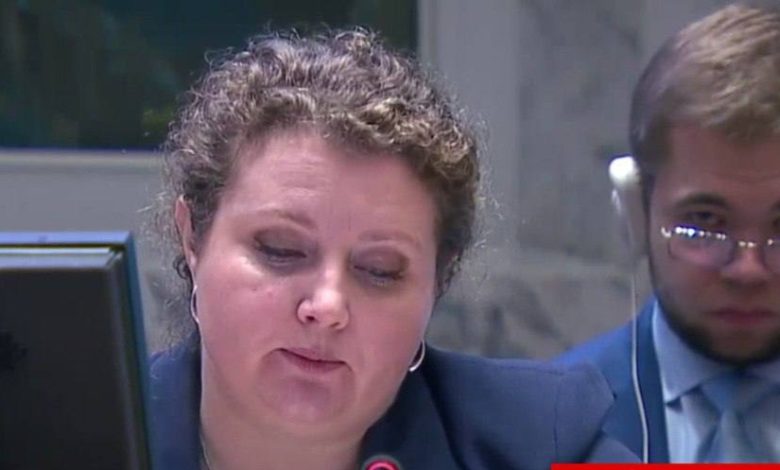Reports
Russia “Turns the Tables”: UN Security Council Session Deals a Blow to the “Taqaddum” Coalition

Sudan Events – Agencies
The UN Security Council has effectively closed the chapter on the Rapid Support Forces (RSF) militia and its ally, the “Taqaddum” coalition, by ignoring proposals for deploying international forces and establishing “safe zones” promoted by Taqaddum leader Abdalla Hamdok. Hamdok had sought to advance these initiatives during a controversial visit to the UK, which sparked protests by Sudanese citizens in Britain. The outcome of these events has been a devastating blow to Hamdok’s ambitions to position himself as a “new Karzai” in Sudan.
Three Key Issues
The session, convened by the UK on Tuesday, included a segment on Sudan, focusing on three main issues. However, it failed to introduce any changes to the political dynamics on the ground. Security Council members reiterated their accusations against both the army and the RSF for the ongoing violations in Sudan. Analysts note that these allegations are repetitive and add no new dimension, as similar statements were made in previous sessions. The Council also renewed its call for both parties to return to negotiations, an ongoing appeal without any tangible progress.
Under-Secretary-General Rosemary DiCarlo expressed support for efforts by the African Union and IGAD (Intergovernmental Authority on Development) to restore inclusive political dialogue in Sudan. She also highlighted the role of the UN Secretary-General’s Special Envoy to Sudan, Ramaphosa Lamamra, in mediating between the two parties and urged the Council to back his efforts. Furthermore, the Council called on the Sudanese army and the RSF to facilitate humanitarian aid delivery to civilians, an issue repeatedly raised in earlier discussions.
International Intervention
While the prospect of international intervention was not on the meeting’s agenda, Russia’s representative at the Security Council preemptively addressed behind-the-scenes discussions in European circles about deploying international forces to separate the warring factions in Sudan. Russia affirmed its support for the Sudanese army and urged the Council to back Sudan’s national institutions. The Russian representative criticized calls for international intervention by “progressives,” a clear reference to the Taqaddum coalition, asserting that such proposals lack domestic support in Sudan.
This strong stance from a veto-wielding power forced the UK to back down. British envoy James Kariuki stated that the time was not right for deploying international forces in Sudan, echoing the position of the UN Secretary-General from an earlier session.
Russia’s Position
Journalist Ammar Arki argues that Russia’s firm position thwarted the US-European plan within the Security Council. He noted that Russia rejected any form of international intervention in Sudan, including foreign oversight of humanitarian aid corridors. Russia also endorsed the Sudanese government’s demand for direct supervision of border crossings, particularly the Adré border crossing with Chad. Sudan’s representative, Harith Idris, claimed the government had detected arms shipments entering the country via this crossing for the RSF militia.
Thwarting the Plan
In summary, analysts view a combination of factors—including Russia’s strong diplomacy, the Sudanese government’s firm stance, protests in London against Abdalla Hamdok, and the RSF’s recent atrocities in Eastern Al-Jazirah—as having inadvertently aligned to derail the plan to place Sudan under international intervention.
This development effectively marks a Western turn away from supporting the RSF, the Taqaddum coalition, and their backer, the UAE, which had no apparent influence in the Security Council proceedings.
Political analysts suggest that the militia, Taqaddum, and their ally, the UAE, have shifted to “Plan B,” which RSF leader Hemetti hinted at in a recent speech. This strategy involves escalating violations against civilians to pressure the Security Council into endorsing international intervention. These violations were accompanied by increased activity from Taqaddum leaders advocating for separating the warring factions and establishing safe zones for civilians, in a last-ditch effort to salvage the insurgent militia. However, Tuesday’s session signaled the failure of this plan, leaving the militia with no option but to face the Sudanese army, risking total annihilation.
Source: “Sudanese Echoes”



